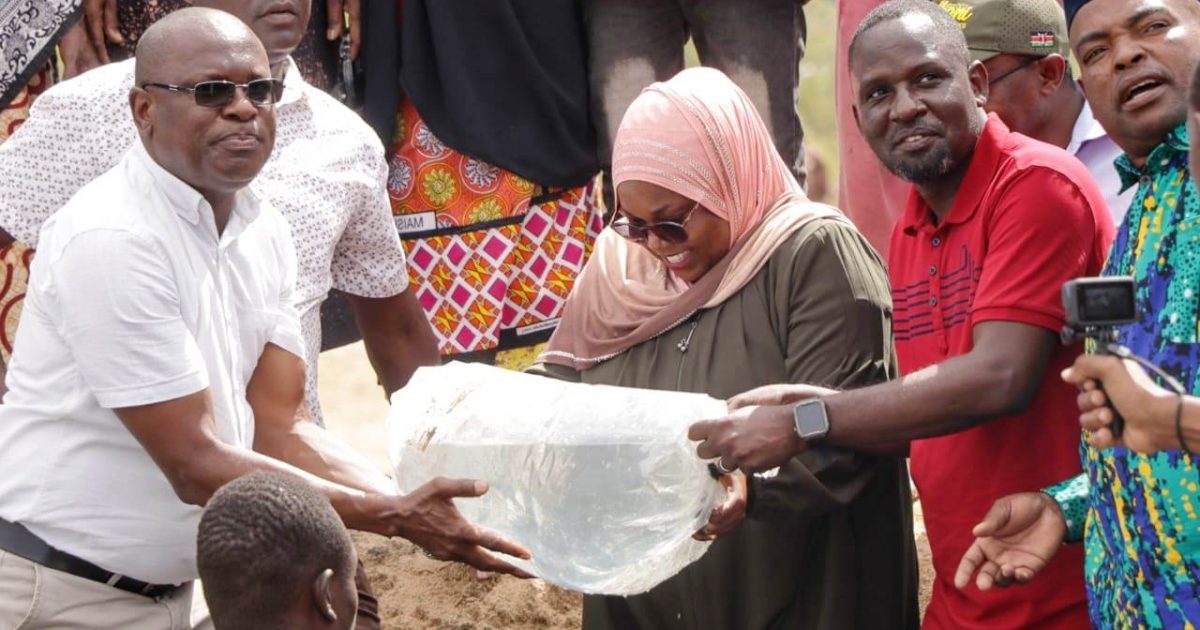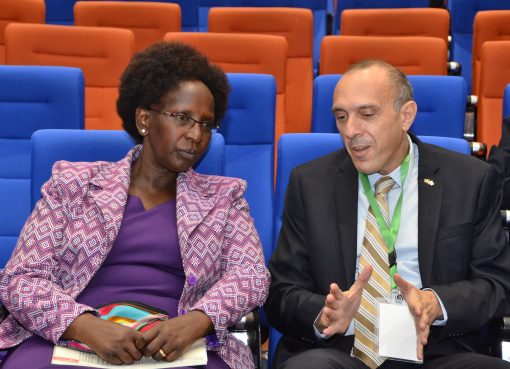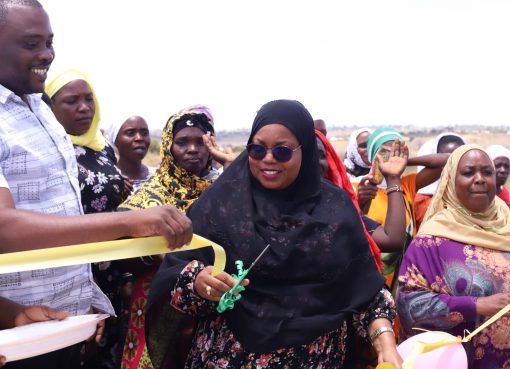Kwale County has kicked-off plans to establish fish farming ponds at an initial cost of Sh2.95 million, as a means of increasing fish production and promoting employment in the coastal county.
The KEMFSED project is implemented by the State Department for Blue Economy and Fisheries, with support from the World Bank, with the project duration being 2020-2025 with funding worth Sh.10 billion.
The initiative is funded through the Kenya Marine Fisheries Socio-Economic Development (KEMFSED) project, designed to improve and enhance livelihoods through sustainable farming of marine tilapia.
The KEMFSED project is being implemented in the coastal counties of Mombasa, Kwale, Kilifi, and Lamu to enable fishermen to increase catches and improve livelihood activities in coastal communities.
Governor Fatuma Achani termed the fish farming initiative a viable means of contributing to fish production, meeting the growing demand in the region, and tackling malnutrition.
Achani was speaking when she led the inauguration and stocking of four aquaculture ponds with tilapia species at the Bonje Beach Management Unit (BMU).
The Governor says the fish development project will help the local small-scale farmers improve their livelihoods and income by sustainably producing tilapia.
She termed the fishing sector as a key component of the National and County governments’ Bottom-up Economic Transformation Agenda and stated that Kwale was giving fisheries and aquaculture the necessary support to thrive.
Achani emphasised on the importance of the fisheries economic stimulus programme in transforming the lives of those trying their hands in fish farming.
The Governor said the project, which would soon be replicated in all six subcounties, would create jobs for other actors such as fish feed manufacturers, fish processors, and traders.
The new fish ponds put up at a cost of Sh2.95 million received a total of 7,200 tilapia fingerlings.
She says the investment in the emerging aquaculture sub-sector can better contribute to the KEMFSED project’s goals of increasing income, diversifying diets, and empowering local coastal communities.
The event was also marked by excitement among community members who expressed hope that the initiative would lead to greater food security and economic empowerment in the region.
“This investment is aimed at transforming the livelihoods of our community and alleviating poverty through sustainable fish farming,” she said.
She says by increasing fish production, it’s hoped that fish can become both more accessible and affordable to many people, besides creating jobs along the supply chain.
The coastal County Boss says the devolved government is encouraging farmers to engage in fish farming besides traditional crops for diversification.
“This new project is a key step towards providing the people with sustainable income, and we urge the beneficiaries to take good care of the ponds and ensure proper management of the fish,” she advised.
Achani, who was accompanied by the County Executive for Agriculture and Fisheries Roman Shera and Kasemeni Member of the County Assembly (MCA), Victor Safari, called on the beneficiaries to ensure meticulous management of the new facilities to ensure value for money.
“Aquaculture farming is the fastest-growing food-producing sub-sector, and fish can be produced more efficiently and cost-effectively,” she said.
She says the devolved government is set to support more fish farmers as a way of boosting productivity so that they realise better returns from fish value chains.
By Hussein Abdullahi




